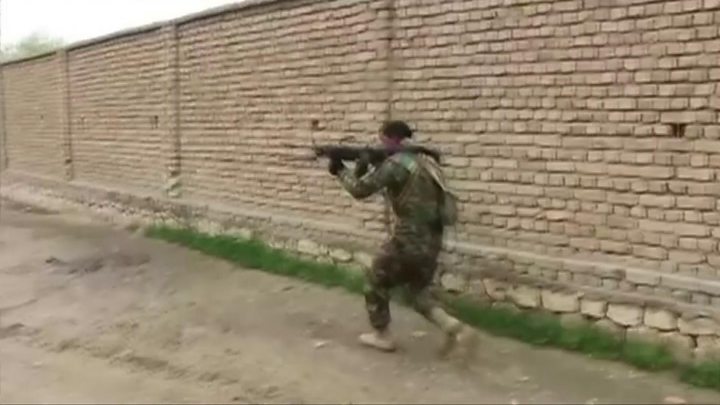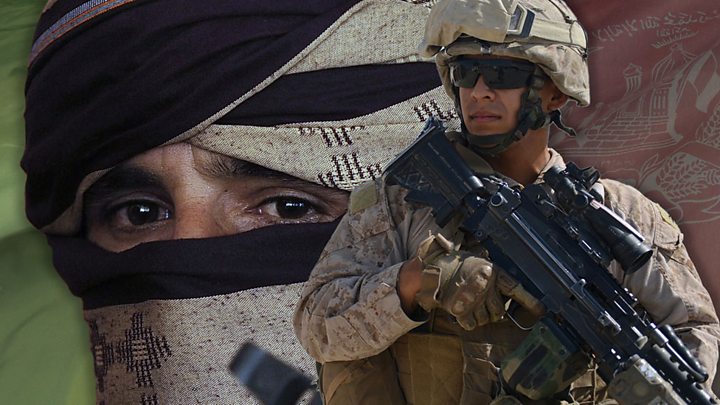 Taliban fighters have attacked the strategic northern Afghan city of Kunduz, setting off a major battle with security forces.
Taliban fighters have attacked the strategic northern Afghan city of Kunduz, setting off a major battle with security forces.The governments says its air strikes have slowed down the militants, who entered the city from four directions.
But the militants have not retreated from their positions, reports say.
Reports say at least three civilians and dozens of fighters died. At least another 10 people were killed when a suicide bomber targeted city police.
The fighting comes in the midst of historic negotiations for a deal between the Taliban and the US.
Gunfire could be heard across the city, where electricity and most telephone services had been cut.
"The city is completely empty, shops are locked, people aren't moving, and light and heavy weapons can be heard in several parts," resident Khaluddin told Reuters news agency.
The Taliban said they had captured several important buildings while officials said the city was still under government control.

Media captionThe US-Taliban peace talks: What you need to know
The attack shows the Taliban "don't believe in the peace opportunity provided by the US and the government of Afghanistan", presidential spokesman Sediq Sediqqi said on Twitter.
The militants have captured Kunduz twice since 2015.
After an attack in September 2015, the militants managed to hold the city for two weeks.

Many signals coming out of Kunduz

As this attack unfolds, it sends many signals. For Taliban fighters, it is a moment to parade their military prowess as they talk peace with the United States and prepare for still sensitive Afghan negotiations.
For the Afghan government, whose elite forces quickly mobilised, another confrontation in Kunduz highlights their ability to strike back and, it is expected, eventually prevail.
And, in the midst of battle, the image of Afghan ministers arriving with US Gen Austin Miller, who heads Nato's mission in Afghanistan, underlines Washington's continuing commitment to Kabul even as it negotiates a historic deal with the Taliban which is boosting this movement's status.
But for many Afghans, especially anxious residents of besieged Kunduz, yet another painful moment only magnifies fears that peace is still a long way away. A US-Taliban deal, said to be very close, will not include a ceasefire - one of many issues during what will be even more difficult talks among Afghans.
The peace talks between the Taliban and the US aim to bring a nearly 18-year conflict to an end. A deal would see a phased US troop pullout in exchange for Taliban guarantees that Afghanistan will not be used by extremist groups to attack American targets.
The Taliban would also begin negotiations with an Afghan delegation on a framework for peace including an eventual ceasefire. The militants have been refusing to negotiate with the Afghan government until a timetable for the US withdrawal is agreed upon.
The Taliban now control more territory than at any point since they were toppled from power in 2001.
